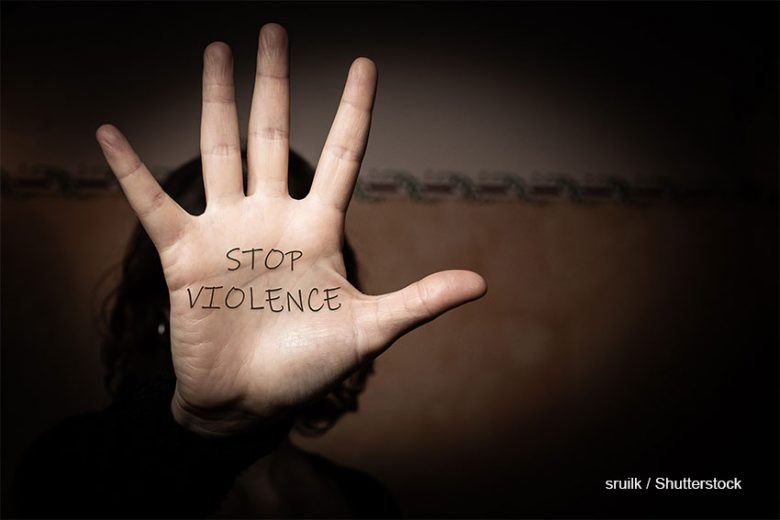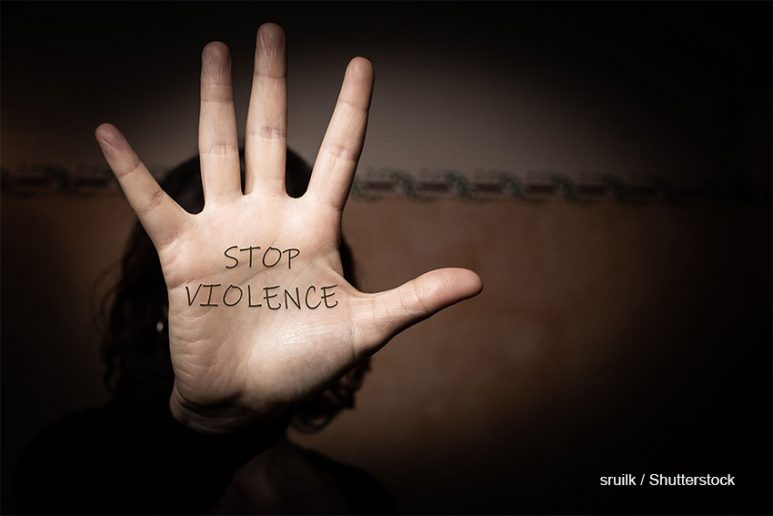By Snežana Miletić
When Marija Lukic and Milena Radulovic decided to talk about sexual harassment, they opened the Pandora’s Box in Serbia. Cases started flooding the media about systematic sexual harassment and abuse as well as verbal abuse in schools, state run hospitals, state institutions, high ranked politicians.
Marija Lukic who was the secretary of Milutin Jelicic – mayor of the town Brus in southern Serbia and member of Serbia’s ruling party from the town of Brus in southern Serbia – accused his of sexual harassment. According to Lukic, during the course of two years, Jelicic sent her almost 15000 lewd messages. This incident led to Jelicic’s conviction of 3 months of imprisonment.

Radulovic’s revelation as well as the stories of other women attracted a lot of media attention in Serbia. One of the most prominent examples is that of Danijela Stajnfeld, an actress who claimed to have fled in the US following her rape by Branislav Lecic – one of Serbia’s most known actors who served as the country’s Minister of Culture and as the leader of Serbian Democrats. During the trial Stajnfeld gave a recording of his admission as evidence. However, Lecic is a powerful man with a lot of media influence. He claimed the recording was a “rehearsal of a play”. Despite other actresses coming forward, including Merima Isakovic – a once famous movie star who now works as a psychiatrist in Australia – the courts dismissed the case.
In the same vein, Nenad Prokic, a professor at the Faculty of Dramatic Arts, a playwright and a former opposition politician who was one of the founders of The Belgrade Circle of Writers, Writers’ Forum and the Liberal Democratic Party, as well as an MP in two terms, was reported to his University’s faculty for sexual harassment by five of his female students including sending an inappropriate photo to one. Although the news went almost unnoticed, Prokic took to the media to excuse himself and justify his actions.
As incidents of sexual harassment took the media by storm more and more women came forward. Journalist and blogger Mina Smiljanic revealed that an anaesthesiologist at Belgrade Obstetrics and Gynecology Hospital “Narodni Front” verbally abused her and said he was “sick of all women”. In addition another woman revealed that she was slapped during labour by her gynaecologist.
To add to the above cases, cases of sexual harassment of underaged girls came to the fore. One of these is the ‘sex parties’ in the town of Jagodina organised by Dragan Markovic Palma, a politician and leader of the Serbian Unity Party which is close to the government. Those parties were attended by several government officials and politicians. Another, similarly horrifying story comes from a researcher at the Petnica Research Station who has been accused of sexually harassing minors and young adults between 2003 and 2014. In both cases, although the local communities knew what was happening everyone remained silent.
The case of the Petnica Research Station is one of the most noteworthy examples of how the media report on -or choose to ignore – gender-based violence. The local community as well as the local media knew for years about the events that were taking place in Petnica. However, no one talked. Victims could not find anyone in the media to report on their story and the local media were highly pressured by the authorities. It is when the Belgrade based newspaper Vreme published the story that suddenly everyone found out of the endless abuse in the premises of the school.
It is no secret that Serbia’s media – most of which are controlled by the state – only care about their ratings. For this reason they reported on sexual harassment in the most inappropriate way they could.
“When it comes to media coverage of sexual violence – the women stepped forward and spoke publicly about the rape but all over the region we read headlines about “sex scandals”, not the rape. Media have the strength and power to shape perspective; therefore, reporting and commenting on gender-based violence should always help victims and prevent future violence. “Click bait” headlines, the romanticized crime (“He killed her out of jealousy” – the headline which de facto romanticizes violence), the lessening or the denial of the crime contribute to the atmosphere of violence,” Ivana Kekin, a prominent intellectual and a psychiatrist from Zagreb told Media Diversity Institute.
Reporting on such issues is no easy task. Journalists as well as the media in general need to approach them ethically and with consideration to the implications they may have to those involved. Following ethical standards is crucial as one statement that may be considered harmless, may cause several damage to victims and survivors of sexual abuse. Apart from a few independent media, the majority of Serbia’s media failed to report responsibly on these stories. Most media, including mainstream media, approached the issues as a tabloid newspaper would do: in the worst, most sensationalist way that belittled the experiences of the women who came forward. The news became all about the experiences of the victims but not in a way that would empower survivors. Reporters question the silence of those women and the reasons they did not come forward sooner disregarding the complexities of speaking about sexual abuse. Some media, went as far as to support that women deserved to be abused and harassed, they questioned the way they looked and dressed, their profession as well as their behaviour. Some journalists even searched these women’s social media profiles, downloaded their photos and judged them publicly.
Wrong steps of the media and the state
The atmosphere of gender-based violence in Serbia is fuelled by the very top of the state – the President of the Republic of Serbia, Aleksandar Vucic. During an informal meeting with opposition leaders Vucic called them “girls” – meaning that they are weaker than him, that they are not equal, that they are less important, that they are “like women” and therefore they are worth less than him. Despite apologising, Serbia’s leader gives a very clear message: women and girls are not equal to men. Such statements can have detrimental impacts to the society as they are covered by the media.
By covering issues of gender-based violence without respecting or following ethical practices the media contribute to patriarchal stereotypes. Serbia’s distinct patriarchal mentality which is complimented by the Balkan version of matriarchy leads to a situation that the media and the state act as an obstacle to those who want to come forward and expose the fallacies of the society. Whistle-blowers’ efforts to expose and bring to justice predators are discouraged by the way the media treat them and such crimes remain hidden.
The moment victims get a mutual support from media, state institutions, as well as from the president of the state who sets the atmosphere in the society, the public will stop turning a blind eye to sexual violence, stop questioning the victims’ statements or downplaying these terrible stories.
“Media coverage of gender-based violence should be done with integrity; the act of violence neither should be justified in any way, nor should it be trivialized, nor should it be romanticized by sending sensationalist and ambiguous messages about who the one responsible for the violence is. The perpetrator is always the one responsible for the violence, not the victim,” Tijana Grumic, a leading Serbian playwright tells Media Diversity Institute.
“Normalization of violence is pervading many segments of our society – from jokes about violence to laws which often fail to protect victims. In this context, since the processes of changing legal regulations are slow, and even when they do happen, violence will not simply disappear; I think that an important step towards changing the perspective is educating – educating children from the earliest age on all existing types of violence, as well as enabling those who experience violence to talk about it,” Grumic continues.
Ivana Kekin also believes that sex education in schools could prevent all kinds of manipulations, even sexual ones. Kekin thinks that we must take action on multiple fronts:
“Firstly, we must teach children from an early age to recognize gender-based violence. Secondly, we must ensure the certainty of punishment for perpetrators and constantly send a clear social message that violence is unacceptable (the role of the media). All these conditions must be met before we can expect that victims, as well as observers, will feel safe enough to reveal the violence in a timely manner. However, nothing can happen without a real political will. In order to make changes in legal system, social activism and civil society organizations, whose social role is important and irreplaceable, must have associates in state institutions and in politics. “
Taking action on multiple fronts is crucial and the media have a crucial role to play
“It is absolutely necessary to believe those women who are brave enough to talk about their experiences of abuse and violence at any time, instead of asking them why they were silent or waiting. They were silent and waited just because there are those who ask them those questions. Laws and procedures might not be encouraging for victims, but, anyway, it is not the law what obliges the victims to report the violence. They do it if and when they feel ready. That is why it is important that we support each other, that we help the injured heal their wounds, that we let them know that we are ready to listen to them whenever they are ready to speak about the violence and, of course, to believe them,” Tijana Grimic says.
The media have a responsibility to report on gender-based violence in the most ethical way and by following journalism’s codes of conduct. Without such practices victims will not come forward and such crimes will continue.

